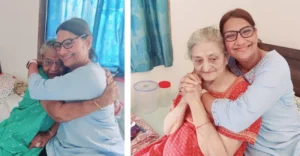Basics of Respite Care
Respite care permits you or your caring parent a well-earned break from caring responsibilities. You might feel worried to leave the care to someone else for even the shortest of times, however, it’s good to know what options are available as sometimes emergency respite care at short notice may also be needed.
What is Elderly Respite Care?
This all depends on what you need. It can be a break for just one night to catch up on some sleep up to a more extended period to allow for a proper holiday.
If one of your parents cares for the other, it’s easy to underestimate the toll it takes on them – mainly if there are broken nights of sleep. To be in charge of the health and well-being of someone increasingly weak is exhausting and implausibly trying.
Respite Care Services:
The same services you’ll receive with respite care, depending on your needs. As a rule, respite care providers are responsible for keeping the person in their care safe and healthy. Based on the clients’ requirement, this might include:
Assistance with Household Chores
Respite care professionals who are making client visits at home can help facilitate daily household chores, such as laundry and meal preparation.
Assistance with Dressing and Bathing
Respite care professionals can assist clients with bathing, dressing, using the bathroom, and other essential daily tasks.
Helping with Medical Appointments
Respite care services can make sure that clients get to all medical appointments safely and on time.
General Medical Care
Respite care professionals won’t be able to give hospital-level care. Still, they’ll be able to help with medications, check on wounds, and perform other primary medical care. Some respite care professionals can also manage medically complicated clients.
Companionship
Respite care professionals can assist elderly residents in day-to-day work & accompany them wherever they go.
Why Do You Need Respite Care?
Caring for your dear ones is a full-time duty. Many family caregivers are happy to take care of someone who is such an essential part of their lives, but that doesn’t mean it can’t be stressful. One of the main reasons for respite care is to help reduce the caregiver’s stress.
Caregiver burnout is widespread. Family caregivers often find themselves overburdened, annoyed, and worried. Over time, this can damage the caregiver’s health.
Respite care is an amazing way to step back and calm down. It can help you lighten your burden and reduce some of the symptoms of caregiver burnout. Knowing that our loved ones are in safe hands and are being taken care of in a good environment, even for a few hours, it’s one less thing to worry about in this everyday life hussle and this can have a huge impact on your overall mental and physical health.
Apart from reducing general stress, there are many other situations in which respite care can help with. These situations can include when the primary family caregiver:
- works outside the home
- has out-of-town obligations
- has a scheduled vacation
- has an upcoming major medical procedure
- has been showing signs of severe burnout
What Are The Types of Respite Care?
Several types of respite care fit different situations and fill various needs. The different types of respite care are discussed below.
Informal Respite Care
Informal respite care is care taken from close friends or family members, especially if you have trusted ones who live close by. This is generally an appropriate solution when you have some occasional tasks or appointments to be attended.
Adult Day Services
Adult day services are great options for seniors who enjoy staying out of their homes. These kind of services are provided at places like senior centers and churches. These services offer seniors the chance to have socialization, supervision, and medical care. They can help you to work or assist to complete needed tasks during the day.
In-home Care
In-home care comes to you. You can look for in-home respite care for temporary conditions or plan out a well organized schedule with a home care aid. You can look for respite in-home care via home health agencies or by searching for individual caregivers.
Residential Care
Residential care is respite care offered in a senior community like a nursing home or assisted living facility. This type of care allows for overnight stays lasting for several weeks. You can use this type of respite care if you’ll be out of town or need a more extended break.
On Concluding Note
We at PapayaCare offer peace of mind and comfort for the elderly and disabled. We understand the elderly and their family and ensure to provide the needed services. We welcome those who require committed supervision and assistance but also desire the comfort and warmth of a home setting. We provide respite care 24*7, 365 days, along with other services.
For more details you can contact us here.
















